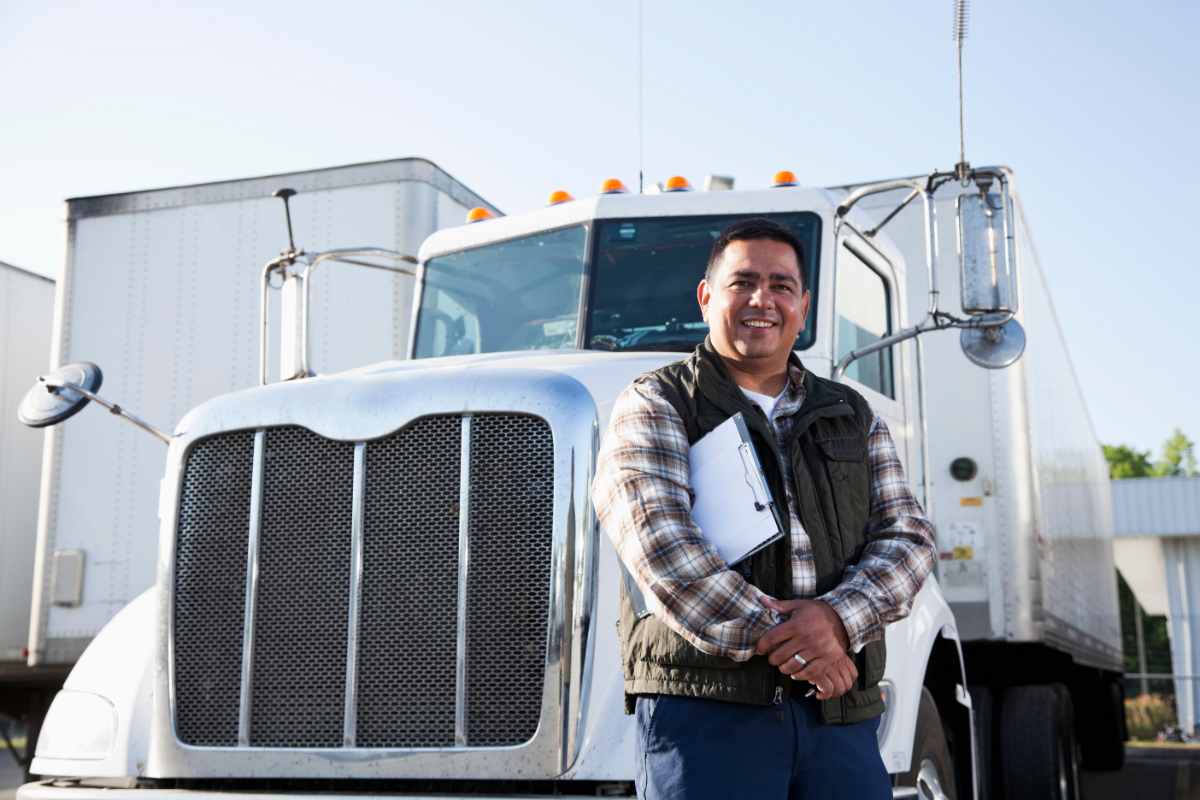Commercial vehicle insurance is a must for any company that relies on vehicles to conduct business. With this type of insurance, your vehicles are protected from financial losses that may result from accidents.
In South Carolina, approximately 140,000 vehicle accidents happen every year. One in 26 of those accidents involve a commercial vehicle. This is why business owners must carry commercial vehicle insurance that meets state requirements.
Who Needs Commercial Vehicle Insurance?
You need commercial vehicle insurance if your company owns vehicles used for business purposes. Vehicles that transport materials to worksites, deliver goods, or are driven to meet clients should be included in the policy.
Commercial vehicle insurance is essential for business owners and contractors who own or rent any of the following types of vehicles:
- Cargo vans
- Box trucks
- Pickup trucks
- Food trucks
- Catering trucks
- Dump trucks
- Refrigerated trucks
- SUVs
- Cars
- Vans
Personal auto insurance policies may not cover some of the vehicle types, so make sure you have enough coverage. Accidents can result in thousands of dollars in losses for your business if you don’t have the right insurance.
Difference Between Regular and Commercial Auto Insurance
 Regular or personal auto insurance policies cover accidents that happen when the vehicle is driven for personal purposes. It typically covers one or two family members. Personal use means driving to and from work, daily errands, or personal travel unrelated to work. However, depending on the insurance company, limited business coverage may be available.
Regular or personal auto insurance policies cover accidents that happen when the vehicle is driven for personal purposes. It typically covers one or two family members. Personal use means driving to and from work, daily errands, or personal travel unrelated to work. However, depending on the insurance company, limited business coverage may be available.
Commercial vehicle insurance typically costs more than personal vehicle insurance. But, the commercial policy covers all vehicles owned by the business, multiple drivers, and employees with poor driving records. Insurance rates and premiums for commercial vehicles are higher because of the greater risk involved.
What Does Commercial Vehicle Insurance Cover?
Company vehicle insurance helps pay the cost of vehicle repairs and the driver’s medical bills for injuries suffered in an accident while on the job. The most common coverages provided by commercial vehicle policies include the following:
> Liability Coverage
Every state requires liability coverage. If your driver is at fault in an accident, it helps pay for damages to another vehicle or medical bills associated with bodily injury to the other driver.
Liability coverage also protects businesses from expensive lawsuits that may arise following an accident. It also provides coverage for loss of income if your company can’t operate without a vehicle that was damaged in a collision.
> Collision Coverage
Collision coverage helps cover the costs of repairing or replacing a company vehicle after it is damaged in a covered accident.
> Comprehensive Coverage
Comprehensive coverage covers the cost of vehicle repairs incurred in a non-collision event such as fire, hail, theft, or vandalism.
> Uninsured/Underinsured Motorist Coverage
If your company vehicle is damaged in an accident caused by an uninsured or underinsured driver, this coverage helps pay your driver’s medical costs.
> Rental Car Coverage
Helps cover the cost of renting a vehicle while your company vehicle is being repaired.
Other coverage options are available such as personal injury protection, gap insurance, roadside assistance, and non-owned vehicle insurance.
What Is Excluded From Coverage?
Unfortunately, commercial vehicle insurance doesn’t cover everything. In most cases, the following items are excluded:
- Contents of the business vehicle.
- Repairs to a rental vehicle.
- Unrelated medical expenses.
- Accidents that occur when the vehicle is used for personal reasons.
Of course, some of the excluded expenses or scenarios may be covered by endorsements or riders for an additional charge.
How Much Does Commercial Vehicle Insurance Cost?
Commercial vehicle insurance costs vary based on several factors. For instance, the coverage you choose, coverage limits, and the deductible all play a role in determining the cost. Also, the vehicle type/weight, miles driven, driving records of employees, and the number of vehicles covered affect the price.
South Carolina Requirements for Commercial Auto Insurance
While coverage requirements vary by state, South Carolina requires commercial vehicles to carry liability insurance and uninsured motorist insurance.
All commercial vehicles in the state must include bodily injury limits of $25,000 per person and $50,000 per accident. A minimum of $25,000 property damage liability per accident is also required.
State requirements also vary between passenger vehicles and property carriers. Your local insurance agent can help you determine the right coverage for your company’s needs.
Contact Sandifer Insurance for a Free Quote on Commercial Vehicle Insurance
At Sandifer Insurance, we understand the complexity of commercial vehicle insurance. So, if you need insurance for business vehicles, we’ll work with the nation’s top insurers to find the right coverage at the best rate for your business.
Sandifer is a family-owned business with over 40 years of experience in helping customers secure competitively priced, reliable insurance for auto, homeowners, life, farm, and commercial needs.
Our team of insurance specialists in Cheraw, South Carolina will make sure your commercial vehicle insurance policy is compliant with all state requirements.
Contact Sandifer Insurance by phone, email, or online for a free quote on commercial vehicle insurance. One of our agents will be happy to answer your questions and ensure that you get the coverage you need.
Source:
- scdps.sc.gov/ – South Carolina Traffic Collision Fact Book
- https://www.samsara.com/guides/commercial-vehicle/ – What Is a Commercial Vehicle?

